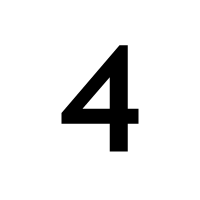- Afghanistan
- Åland Islands
- Albania
- Algeria
- American Samoa
- Andorra
- Angola
- Anguilla
- Antarctica
- Antigua and Barbuda
- Argentina
- Armenia
- Aruba
- Australia
- Austria
- Azerbaijan
- Bahamas
- Bahrain
- Bangladesh
- Barbados
- Belarus
- Belgium
- Belize
- Benin
- Bermuda
- Bhutan
- Bolivia
- Bonaire, Sint Eustatius, and Saba
- Bosnia and Herzegovina
- Botswana
- Bouvet Island
- Brazil
- British Indian Ocean Territory
- British Virgin Islands
- Brunei
- Bulgaria
- Burkina Faso
- Burundi
- Cambodia
- Cameroon
- Canada
- Cape Verde
- Cayman Islands
- Central African Republic
- Chad
- Chile
- China
- Christmas Island
- Cocos [Keeling] Islands
- Colombia
- Comoros
- Cook Islands
- Costa Rica
- Croatia
- Cuba
- Curaçao
- Cyprus
- Czech Republic
- Congo - Kinshasa
- Denmark
- Djibouti
- Dominica
- Dominican Republic
- Timor-Leste
- Ecuador
- Egypt
- El Salvador
- Equatorial Guinea
- Eritrea
- Estonia
- Ethiopia
- Falkland Islands
- Faroe Islands
- Fiji
- Finland
- France
- French Guiana
- French Polynesia
- French Southern Territories
- Gabon
- Gambia
- Georgia
- Germany
- Ghana
- Gibraltar
- Greece
- Greenland
- Grenada
- Guadeloupe
- Guam
- Guatemala
- Guernsey
- Guinea
- Guinea-Bissau
- Guyana
- Haiti
- Heard Island and McDonald Islands
- Honduras
- Hong Kong SAR China
- Hungary
- Iceland
- India
- Indonesia
- Iran
- Iraq
- Ireland
- Isle of Man
- Israel
- Italy
- Côte d’Ivoire
- Jamaica
- Japan
- Jersey
- Jordan
- Kazakhstan
- Kenya
- Kiribati
- Kosovo
- Kuwait
- Kyrgyzstan
- Laos
- Latvia
- Lebanon
- Lesotho
- Liberia
- Libya
- Liechtenstein
- Lithuania
- Luxembourg
- Macau SAR China
- Macedonia
- Madagascar
- Malawi
- Malaysia
- Maldives
- Mali
- Malta
- Marshall Islands
- Martinique
- Mauritania
- Mauritius
- Mayotte
- Mexico
- Micronesia
- Moldova
- Monaco
- Mongolia
- Montenegro
- Montserrat
- Morocco
- Mozambique
- Myanmar [Burma]
- Namibia
- Nauru
- Nepal
- Netherlands
- Netherlands Antilles
- New Caledonia
- New Zealand
- Nicaragua
- Niger
- Nigeria
- Niue
- Norfolk Island
- North Korea
- Northern Mariana Islands
- Norway
- Oman
- Pakistan
- Palau
- Palestinian Territories
- Panama
- Papua New Guinea
- Paraguay
- Peru
- Philippines
- Pitcairn Islands
- Poland
- Portugal
- Puerto Rico
- Qatar
- Congo - Brazzaville
- Réunion
- Romania
- Russia
- Rwanda
- Saint Barthélemy
- Saint Helena
- Saint Kitts and Nevis
- Saint Lucia
- Saint Martin
- Saint Pierre and Miquelon
- Saint Vincent and the Grenadines
- Samoa
- San Marino
- São Tomé and Príncipe
- Saudi Arabia
- Senegal
- Serbia
- Serbia and Montenegro
- Seychelles
- Sierra Leone
- Singapore
- Sint Maarten
- Slovakia
- Slovenia
- Solomon Islands
- Somalia
- South Africa
- South Georgia and the South Sandwich Islands
- South Korea
- South Sudan
- Spain
- Sri Lanka
- Sudan
- Suriname
- Svalbard and Jan Mayen
- Swaziland
- Sweden
- Switzerland
- Syria
- Taiwan
- Tajikistan
- Tanzania
- Thailand
- Togo
- Tokelau
- Tonga
- Trinidad and Tobago
- Tunisia
- Turkey
- Turkmenistan
- Turks and Caicos Islands
- Tuvalu
- U.S. Virgin Islands
- Uganda
- Ukraine
- United Arab Emirates
- United Kingdom
- United States
- U.S. Minor Outlying Islands
- Uruguay
- Uzbekistan
- Vanuatu
- Vatican City
- Venezuela
- Vietnam
- Wallis and Futuna
- Western Sahara
- Yemen
- Zambia
- Zimbabwe
A Job Interview: What to Be Prepared For

A Job Interview: What to Be Prepared For
It doesn't matter if you're a high school, a college student, a new grad, or someone who has been out of the workforce for some time; going on a job interview doesn't have to be terrifying. An interview is a chance for both you and the employer to determine whether or not you are a good fit for each other.
The following is a step-by-step breakdown of the standard interview process, including what to expect at each stage.
The Stage Before the Interview
The "pre-interview phase" of the job application process includes the tasks you must complete before attending an interview. Send a cover letter, resume, and other application materials to the recruiting manager at this step.
Before you were asked in for an in-person interview, you may have even had a phone interview with the management. As a result, the hiring manager has a general idea of your experience and qualifications before you ever enter the interview room.
The First Steps of the Interviewing Process
While your interview may be held in your high school or college, the majority of the time it will be held at the company's headquarters or by web-based technologies. When you arrive, you may be requested to wait until the hiring manager is ready to meet you (by a secretary or another employee).
Interviews are often conducted one-on-one with the manager or supervisor with whom you would be working directly. To get a sense of how the company's recruiting process works, you may interview with an HR staffer.
Types of Questions to Ask in the Interview Phase
The manager's office is most likely where the interview will take place. The majority of the interview will be focused on determining whether or not you are a good fit for the organisation, and she may begin by sharing some details about her position or the company.
No two interviews are the same since every interviewer has their own unique style and set of questions to ask. Most interviewers, on the other hand, use the questions they ask to gauge your whole demeanour as well as your specific abilities. As a general rule, most interviewers will ask at least one of the following sorts of questions.
Questions to Ask to Make Sure
Objective information about yourself such as your GPA, major and number of years at your last work will be required in these questions.
Behavioral/Competency Test Questions
This type of inquiry asks you to explain a circumstance in which you displayed a specific attribute. Answering them can help you learn how to manage problems of this nature in a new workplace. How would you describe a behavioural question? "Describe the most difficult situation you encountered when working at your previous position. How did you deal with that, sir?"
Problem-Solving Situations
A situational question is one in which the interviewer outlines a hypothetical circumstance, and the interviewee is required to explain how she would or has previously dealt with it. The interviewer wants to know how you would respond to a variety of circumstances in the workplace when asked this sort of question. Situational questions like, "What would you do if two of your team members had an argument that impacted your productivity?" are examples.
Questions to Ask During a Case Interview
When applying for management consulting or investment banking positions, you are more likely to face case interview questions. How would you handle a situation like this in the workplace? This is a common type of case interview question.
There are instances when these inquiries are relevant to the work (like "How many petrol stations are there in Europe?") and times when they aren't. Interviewees can exhibit their analytical and problem-solving abilities through the use of case interview questions.
After the Questions: The Interview Phase
- Depending on the length of the interview, the interviewer may ask questions for up to an hour. You may be asked if you have any questions for her thereafter. You can use this time to inquire about the organisation and/or the position you're applying for. It's also a time for you to re-establish your credentials.
- The hiring manager may take you on a tour of the company and introduce you to other workers after the "questions" portion of the interview. You'll have a chance to meet your future coworkers and get a sense of the workplace culture on a tour.
- Most interviews stop here, although you may be requested to offer a presentation to the recruiting manager or a panel of employees. As a result, if this is the case, you will have been given plenty time to prepare.
- You shouldn't expect the hiring manager to inform you whether or not you've got the job after the interview. Please feel free to check with her prior to departing if she has not previously indicated when you may expect an answer.
The End of the Job Search
- Within a few days of completing the interview, the "post-interview phase" begins in the job application process. In this stage, the hiring manager (as well as anybody else engaged in the recruiting process) assesses whether or not you are a good fit for the role. Think about whether or not this employment is right for you at this moment.
- With few exceptions (such as those who are conducting interviews over a prolonged period of time), most organisations will react within a week or two with a "yes" or "no." Unfortunately, you may not receive a response from a company unless you have been offered a position.
- Do not let the fact that you did not receive the job deter you from going back for another one. All interviews are practise opportunities for interviewing skills and for determining which professions and organisations best suit your personality, interests, and talents."
Other types of interviews include:
- The interview shown in this article is a standard one between a hiring manager and an interviewee, but you may come across other kinds of interviews as well. Here are a few common occurrences.
- At the same time, additional candidates are interviewed by the same person. This sort of interview is known as a "group interview." They might ask each of you separate questions in this situation, but it's possible that they'll pose the same question to both of you. As part of the interview process, you may be asked to tackle hypothetical challenges as a team.
- Another sort of group interview is one in which you are questioned by many interviewers. Either a panel of interviewers will ask you questions in turn, or you will meet with each interviewer individually.
- Your interview questions will likely remain a combination of verification, behavioural and situational inquiries, regardless of whether or not you are in a group interview.

 by Admin
by Admin


